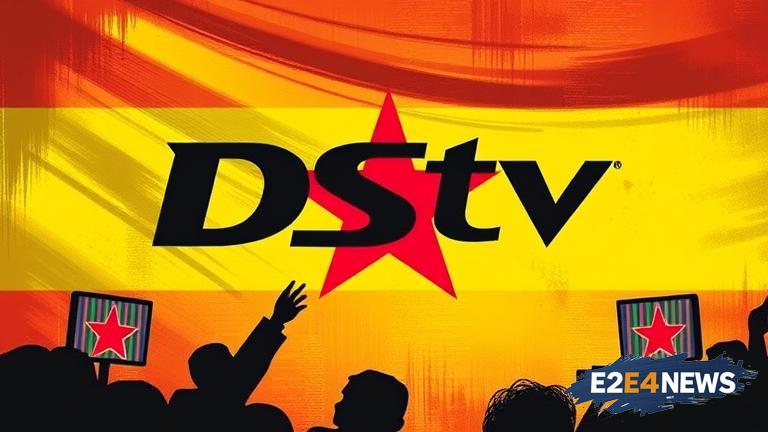In a bold move, the Ghanaian government has threatened to suspend the licence of popular satellite television provider DStv, citing exorbitant subscription prices that have left many consumers feeling exploited. The decision comes after months of complaints from subscribers who claim that the prices are unaffordable and unfair. According to reports, the Ghanaian National Communications Authority (NCA) has been inundated with complaints about DStv’s pricing, with many subscribers calling for regulatory intervention. The NCA has since issued a statement warning DStv that it will take drastic measures if the company fails to review its pricing strategy. The threat to suspend DStv’s licence has sent shockwaves through the industry, with many experts predicting that it could have far-reaching consequences for the company’s operations in Ghana. DStv, which is owned by MultiChoice, has been operating in Ghana for over two decades and has a significant subscriber base. However, in recent years, the company has faced growing criticism over its pricing, with many subscribers accusing it of taking advantage of its market dominance. The Ghanaian government’s decision to threaten DStv’s licence is seen as a major victory for consumer rights advocates, who have been pushing for greater regulatory oversight of the telecommunications industry. The move is also expected to have significant implications for other telecommunications companies operating in Ghana, as it sets a precedent for greater accountability and transparency. As the standoff between the Ghanaian government and DStv continues, subscribers are holding their breath, hoping that the company will finally review its pricing strategy and make its services more affordable. The controversy has also sparked a wider debate about the role of regulatory bodies in protecting consumer interests and promoting fair competition. Many experts believe that the NCA’s decision to threaten DStv’s licence is a step in the right direction, as it demonstrates a commitment to holding companies accountable for their actions. However, others have expressed concerns that the move could have unintended consequences, such as job losses and reduced investment in the sector. Despite these concerns, the Ghanaian government remains resolute in its determination to protect consumer interests and promote fair competition. The country’s Minister of Communications, Ursula Owusu-Ekuful, has stated that the government will not hesitate to take action against any company that exploits its subscribers. As the situation continues to unfold, subscribers are eagerly awaiting the outcome, hoping that it will lead to more affordable and accessible television services. The controversy has also highlighted the need for greater transparency and accountability in the telecommunications industry, as well as the importance of regulatory bodies in protecting consumer interests. In recent years, there have been growing concerns about the high cost of television services in Ghana, with many subscribers struggling to afford the monthly subscription fees. The Ghanaian government’s decision to threaten DStv’s licence is seen as a major step towards addressing these concerns and promoting greater affordability and accessibility. The move is also expected to have significant implications for the wider telecommunications industry, as it sets a precedent for greater regulatory oversight and accountability. As the debate continues, one thing is clear: the Ghanaian government is committed to protecting consumer interests and promoting fair competition, and it will not hesitate to take action against any company that exploits its subscribers.





